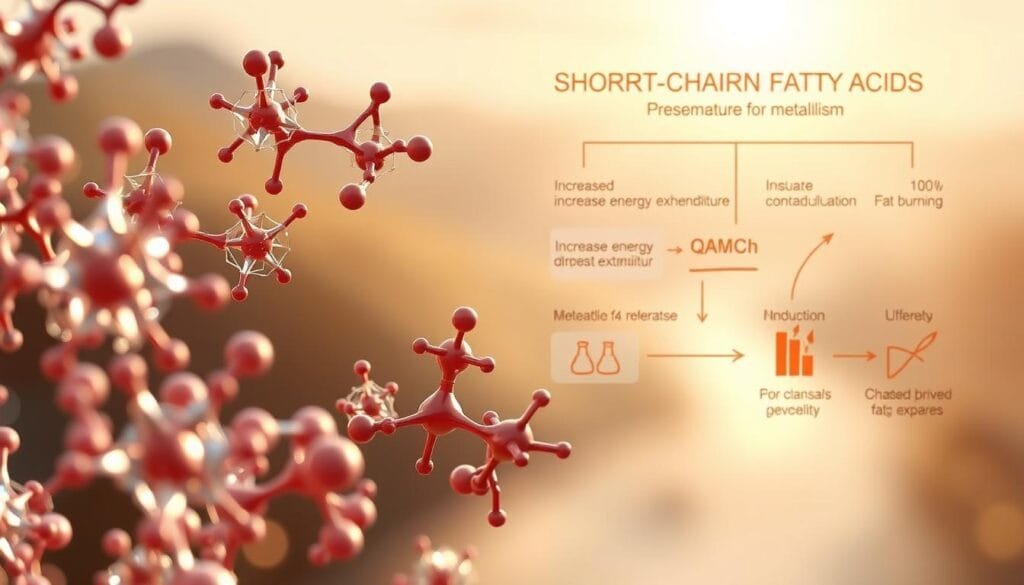Currently Empty: RM0.00
Trillions of microorganisms live in the human digestive system, forming a complex ecosystem known as the gut microbiome. Among these, probiotics—live bacteria and yeasts—play a vital role in supporting overall health. Found in fermented foods like yogurt, kimchi, and tempeh, these beneficial microbes help balance intestinal flora and produce essential nutrients such as vitamin K and B vitamins.
Emerging research highlights how gut bacteria influence metabolism, the process by which the body converts food into energy. A balanced microbiome may enhance calorie-burning efficiency and support weight management. Studies suggest certain probiotic strains can improve hormone regulation, optimize nutrient absorption, and reduce inflammation—all factors linked to metabolic function.
This article explores the science behind these interactions. Readers will learn how specific dietary choices can nurture gut health, potentially leading to improved energy levels and sustainable weight outcomes. Practical insights on selecting probiotic-rich foods and understanding their effects on the body will also be covered.
Key Takeaways
- Probiotics support digestive balance and nutrient production.
- Gut health directly impacts metabolic efficiency.
- Certain strains may aid in hormone regulation and fat processing.
- Dietary changes can positively influence microbiome diversity.
- Fermented foods are accessible sources of beneficial bacteria.
Introduction: The Link Between Probiotics and Metabolism
Your digestive tract houses a bustling world of microorganisms that quietly shape bodily functions. This living network, called the gut microbiome, contains over 100 trillion microbes working like invisible partners. Their activities stretch far beyond digestion—they craft vitamins, train immune cells, and even send signals to organs.
Overview of Gut Health and Metabolism
Think of the gut as a control center for energy use. Friendly bacteria break down fiber into compounds that fuel cells and regulate blood sugar. Studies show diverse microbial communities help extract nutrients efficiently, while poor diversity correlates with sluggish energy processing.
The Importance of a Balanced Microbiome
Modern diets high in processed foods often starve beneficial gut bacteria. This imbalance—called dysbiosis—triggers inflammation and disrupts hormone signals tied to hunger. Over time, these changes may promote fat storage and reduce calorie-burning capacity.
Maintaining microbial variety through probiotic-rich foods strengthens this biological teamwork. Fermented items like kefir or sauerkraut introduce strains that crowd out harmful organisms. A thriving microbiome doesn’t just support digestion—it helps your body run like a well-oiled machine.
Boost your metabolism naturally with probiotic: Mechanisms and Benefits
Probiotics act as microscopic architects in the gut, constructing compounds that reshape energy management. Through complex interactions with undigested fiber, these live cultures generate substances that directly impact how cells utilize fuel.
How Probiotics Produce Short-Chain Fatty Acids
When probiotics ferment dietary fiber, they create three key short-chain fatty acids: butyrate, acetate, and propionate. These molecules serve as energy sources for intestinal cells while influencing fat oxidation rates. Butyrate specifically enhances mitochondrial function, helping cells burn calories more effectively.

Research shows acetate reduces appetite signals by interacting with brain receptors. Propionate meanwhile blocks enzymes involved in cholesterol production. Together, these fatty acids create an environment favoring leaner body composition.
The Role of Hormone Regulation and Fat Storage
Specific bacterial strains stimulate gut cells to release GLP-1 and PYY hormones. These chemical messengers slow digestion and promote feelings of fullness, helping individuals consume fewer calories naturally. A 2022 study revealed certain probiotics increase fecal fat excretion by 30% compared to placebo groups.
The protein ANGPTL4 demonstrates particular promise for weight loss efforts. By inhibiting lipoprotein lipase activity, it prevents fat cells from storing excess energy. This dual action—reducing intake while enhancing expenditure—explains why balanced gut flora supports sustainable body weight management.
Understanding the Gut Microbiome’s Role in Metabolic Health
Scientists now recognize gut bacteria as key players in metabolic processes. Two bacterial families—Bacteroidetes and Firmicutes—dominate this microscopic ecosystem. A 2023 study revealed that individuals with obesity often show higher Firmicutes levels compared to those with moderate weight.
Gut Bacteria and Weight Management
This bacterial ratio impacts how efficiently the body extracts calories from food. Firmicutes excel at breaking down complex carbohydrates, potentially leading to increased fat storage. Research suggests people with diverse gut microbiota tend to manage weight more effectively than those with limited bacterial variety.
Inflammation Reduction and Energy Levels
Imbalanced gut communities often trigger chronic inflammation, which disrupts blood sugar regulation. This inflammatory state can reduce cellular energy production by up to 40%, according to clinical trials. Restoring bacterial balance helps stabilize insulin responses, supporting sustained energy levels throughout the day.
Emerging evidence connects improved microbial diversity to better metabolic outcomes. Those who maintain varied gut bacteria populations typically show enhanced nutrient processing and reduced obesity risks compared to individuals with less diverse microbiomes.
Dietary Approaches: Incorporating Probiotic Foods and Supplements
Strategic food choices can transform gut health and energy processing. Pairing probiotic-rich foods with prebiotic sources creates a powerful synergy for metabolic support. This approach feeds beneficial microorganisms while introducing new strains to strengthen digestive efficiency.
Foods Rich in Active Cultures and Prebiotics
Fermented items like Greek yogurt pack double the live cultures of regular varieties. Kimchi and sauerkraut offer tangy flavor alongside diverse bacterial strains. For optimal results, combine these with prebiotic-rich garlic or oats—their fibers fuel microbial growth.
Bananas and asparagus contain inulin, a fiber that helps probiotics thrive. Studies show diets combining both prebiotics and probiotics increase beneficial bacteria populations by 60% compared to isolated use. Try adding kefir to berry smoothies with flaxseed for a gut-nourishing breakfast.
Choosing High-Quality Probiotic Supplements
Look for products containing 10-50 billion CFUs (colony-forming units) from multiple strains like Lactobacillus and Bifidobacterium. Third-party tested supplements ensure potency matches label claims. Capsules with delayed-release coatings survive stomach acid better than tablets.
“Diversity matters more than sheer quantity,” notes nutrition researcher Dr. Elena Marquez. “A 5-strain formula often outperforms single-strain options.” Pair supplements with fermented foods for comprehensive support. For detailed guidance on probiotic benefits, consult trusted resources.
Lifestyle Strategies to Enhance Metabolic Rate
Daily habits hold surprising power over how efficiently our bodies burn fuel. Combining targeted physical activity with recovery practices creates a powerful formula for maintaining healthy energy expenditure and weight balance throughout the day.
Exercise and Its Impact on Metabolism
Timing workouts strategically amplifies their effects. A 2018 study revealed that eating breakfast before exercising accelerates calorie burn for hours afterward. Twenty minutes of strength training can elevate metabolic rate for up to two hours post-session.
Cardio sessions pack lasting benefits too. Research shows 45 minutes of vigorous aerobic exercise boosts energy expenditure for 14 hours. This afterburn effect helps manage weight by converting stored fat into usable fuel.
The Importance of Quality Sleep and Stress Management
Restorative sleep acts as a metabolic reset button. Getting just 5.5 nightly hours slashes fat loss efficiency by 55%. Consistent 6-hour sleepers often carry 5-15 extra pounds around their midsection compared to those who sleep eight hours—a key factor in weight management struggles.
Chronic stress throws another wrench in the works. Elevated cortisol levels from daily pressures can reduce calorie burn by 104 calories daily while promoting fat storage. Simple practices like deep breathing or evening walks help counter these effects, protecting metabolic efficiency.
Pairing these lifestyle approaches with gut-friendly nutrition creates a comprehensive way to support the body’s natural energy systems. The combination helps maintain healthy weight management while promoting sustained vitality in sustainable ways.
Scientific Insights: Research and Expert Opinions
Recent breakthroughs in microbiome research reveal how specific bacterial strains influence body composition. Rigorous clinical trials now confirm what scientists have long suspected—targeted probiotic use can reshape physical health outcomes.
Key Studies Supporting Probiotic Benefits

A 2021 trial involving Lactobacillus curvatus and Lactobacillus plantarum demonstrated measurable changes in body measurements. Participants consuming these strains daily showed 4.6% reductions in visceral fat over 16 weeks compared to control groups.
Another study tracked 114 adults receiving Lactobacillus sakei supplements. After three months, the treatment group lost 1.8 inches more waist circumference than placebo recipients. Body fat percentages dropped nearly 3% in those taking the probiotic.
- Lactobacillus gasseri reduced BMI by 5% in overweight individuals
- Meta-analysis of 33 trials showed 0.5% A1c reductions in diabetic patients
- Emerging research highlights Akkermansia muciniphila for fat processing
Dr. Helena Wong, a Kuala Lumpur-based nutrition researcher, notes: “These findings prove microbial interventions could revolutionize weight management strategies. Personalized probiotic plans might soon become standard in metabolic care.”
Current investigations explore how Bifidobacterium species enhance insulin sensitivity. Early results suggest combining specific strains amplifies effects, offering new hope for sustainable loss outcomes.
Connect with Wellness Concept for Expert Guidance
Navigating the world of gut health becomes simpler with professional support. Wellness Concept specializes in creating tailored plans that address individual metabolic needs and weight goals. Their team analyzes gut flora composition, dietary habits, and lifestyle factors to recommend precise strategies.
Business Hours and Personalized Consultations
Available Monday to Friday from 9:30 AM to 6:30 PM, and weekends from 10 AM to 5 PM, consultations fit diverse schedules. Sessions include assessments of current probiotics intake, energy levels, and metabolic markers. Clients receive actionable steps to improve nutrient absorption and body composition.
Contact Us via WhatsApp at +60123822655
For instant guidance, message Wellness Concept directly. Their experts clarify doubts about supplements, meal planning, or symptom management. This service also helps track progress and adjust strategies for sustained health improvements.
Conclusion
Supporting gut health through probiotics opens multiple pathways to improved well-being. Beyond influencing energy use, these beneficial organisms help maintain balanced cholesterol levels and strengthen immune responses. Research confirms their role in reducing risks linked to heart disease and chronic inflammation.
While most people tolerate probiotic-rich foods well, temporary bloating may occur during initial use. Those with sensitive digestion should introduce fermented items gradually. Supplements offer concentrated support but require careful strain selection for targeted results.
Combining diverse dietary sources with active lifestyles creates lasting benefits. Simple ways like adding kimchi to meals or choosing yogurt snacks can make meaningful differences. For personalized strategies, consider consulting nutrition experts who analyze individual health needs.
As science continues exploring microbial partnerships, one truth remains clear: nurturing gut bacteria lays the foundation for holistic wellness. Small, consistent choices today can shape tomorrow’s metabolic resilience.
FAQ
How do probiotics influence metabolism?
Probiotics help regulate digestion and nutrient absorption. They produce short-chain fatty acids, which support energy balance and may reduce fat storage by improving hormone signaling.
Can gut bacteria affect weight management?
Yes. A balanced microbiome helps control inflammation and blood sugar levels, which play roles in appetite and fat storage. Studies suggest certain strains like Lactobacillus and Bifidobacterium may aid weight loss efforts.
What foods are rich in probiotics and prebiotics?
Fermented foods like kimchi, kefir, and yogurt contain active cultures. Prebiotic fibers in garlic, onions, and bananas feed beneficial bacteria, enhancing their metabolic benefits.
Are there side effects to taking probiotic supplements?
Some people experience mild bloating or gas initially. Choosing reputable brands like Culturelle or Garden of Life ensures quality and reduces risks. Consulting a healthcare provider is advised for tailored advice.
How does exercise complement probiotic benefits?
Physical activity increases microbial diversity in the gut. Combined with probiotics, it improves insulin sensitivity and calorie burning, creating a synergistic effect for metabolic health.
What role does sleep play in metabolic rate?
Poor sleep disrupts hunger hormones like ghrelin and leptin, leading to cravings. Quality rest supports gut health, allowing probiotics to function optimally for energy production and fat breakdown.
Is there scientific evidence linking probiotics to weight loss?
Research shows certain strains reduce body fat and waist circumference. For example, a 2018 study found Lactobacillus gasseri helped participants lose abdominal fat over 12 weeks.
How can Wellness Concept assist with personalized plans?
Their experts offer consultations to align diet, supplements, and lifestyle with individual goals. Contact them via WhatsApp at +60123822655 for guidance on improving metabolic health through gut-friendly strategies.


